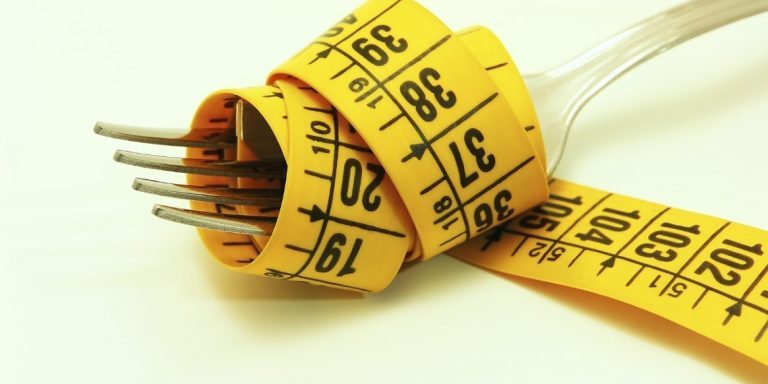American culture encourages a distorted view of food and body, which unfortunately feeds into an unhealthy stress cycle.

Instagram, women’s magazines and fitness bloggers often portray unrealistic ideals of what our bodies should look like and flash headlines advertising tips and tricks that will help you lose that last bit of weight. The diet industry is a multi-billion dollar machine with websites, products, and books aimed at telling us the latest way we can shed fat and achieve our goals for good–often while buying the author’s products along the way.
It certainly raises a flag as to the goals of these authors–are they trying to help us or just trying to make money? Are these individuals and companies that different from most of the processed food industry?
Regardless, these diets, books, supplements, cleanses and weight loss products are still capturing plenty of interest and attention. Their implication is that once you achieve the right body, you’ll be accepted, so just keep buying more books and products and magazines and videos and working on your “unacceptability” until then. Readers try to adopt the tips and tricks they read about, which are usually not sustainable in the long-run or tailored for their individual biochemistry. Inevitably we give up–typically a sensible choice–but then often blame ourselves for failure, which can cause diminished self-esteem and a greater sense of cognitive dissonance and stress.

This cycle continues with more attempts to get our bodies how they “should” be and more “failures” along the way. A cycle of compulsive dieting and food and body obsession may ensue for some folks, leading to a very stressful way of life. In fact, in a study of female dieters, calorie restriction has been shown to increase the stress hormone cortisol as well as their sense of perceived stress (Tomiyama, et. al., 2010).
When we break a diet, we often go for sugar and carb-heavy foods. The physiological effects of sugary foods can provide a temporary mental boost in the form of serotonin, but those effects are short-lived and eventually lead to a cycle of shame and continued overeating, not to mention mood swings and inflammation in the long-run. The effects on blood sugar of this type of eating also contribute to further physical cravings for sweet foods.
So, how to break the cycle? Fortunately, there is another cultural movement that seems to be gaining ground. Many health professionals and lay people alike are starting to embrace a way of eating (and sleeping, exercising, etc) that focuses on feeling good and treating your body gently and with kindness. This approach involves nutrition education, observing and increasing awareness of our own bodies’ reactions and making changes gradually and in a sustainable way. Instead of diets, sane & healthy eating plans like Whole30, Pescatarianism and the Paleo Diet are gaining popularity too. By focusing on whole foods and loads of vegetables, these approaches bring us back to the way our bodies were meant to eat.

If you’re looking to maximize your odds of a sane, balanced relationship with foods, here are my top tips:
- Eat loads of veggies. We could debate all day on the virtues of Paleo versus vegetarianism, but at the end of the day, we all know a heavily plant-based diet is a solid choice. You’d have a hard time not feeling good if you were eating 6 cups of vegetables a day.
- Find a few foods that feel like treats, but that you won’t feel tempted to go over the top with. This may take some trial and error. Be patient with yourself.
- You’re going to eat out sometimes, so accept this. Pick your favorite 1 thing on the menu as a splurge (i.e. fries, steak, etc) and then load up on veggies and/or lean protein for the rest of your meal.
- Have some kind of routine with your eating. Maybe you eat breakfast at work and bring your lunch and then go out to dinner. Or maybe you have 5 mini meals a day. But the more you can have some kind of set-it-and-forget-it structure while also providing yourself steady fuel, the less you’ll face decision fatigue around food and the less you’ll have the urge to constantly snack or to have a big binge.

Learn more about Heather and how to schedule a session with her now!





